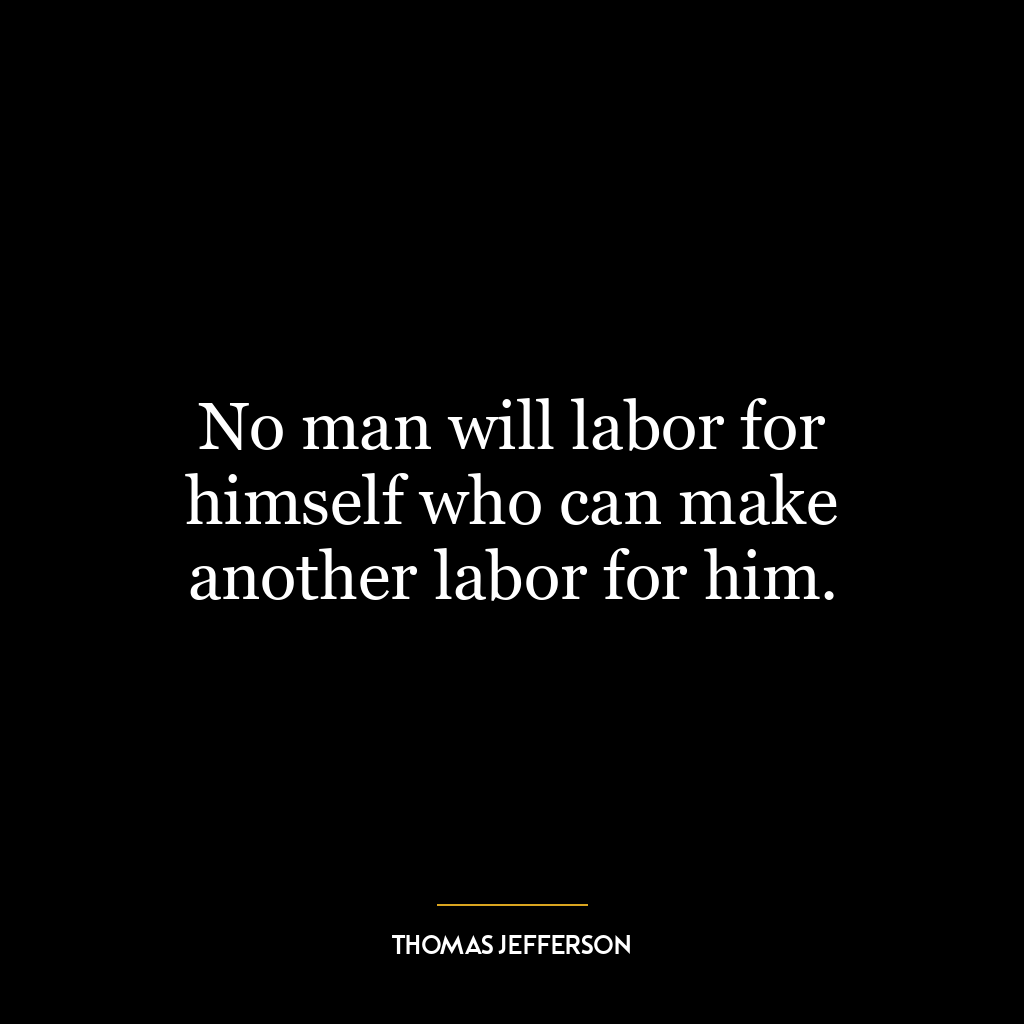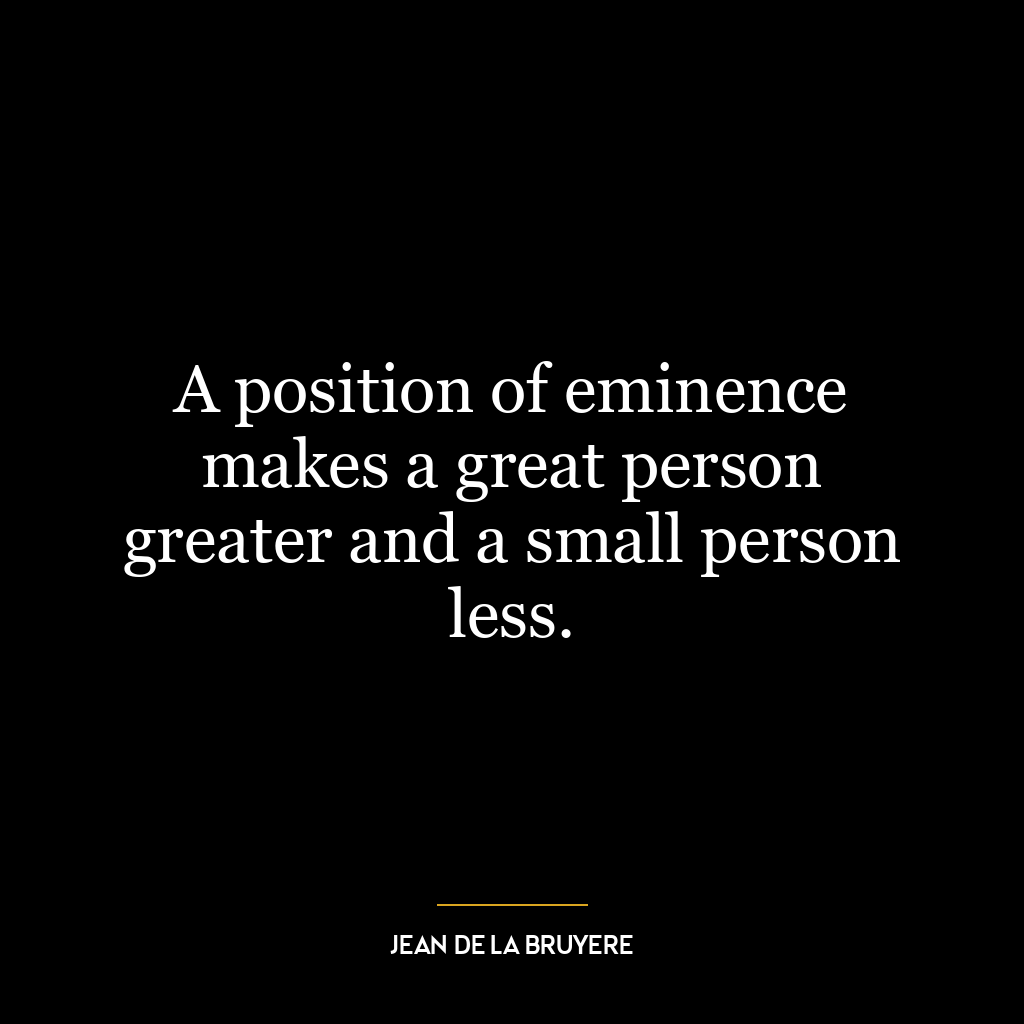This quote suggests that if a person has the option to delegate work to someone else, they will usually choose to do so instead of doing the work themselves. It highlights human nature’s tendency towards efficiency and ease, sometimes at the expense of others. The quote also implies a critique on exploitation and power dynamics where those in authority might take advantage of their position to offload their responsibilities onto others.
In today’s world, this concept is evident in various socioeconomic structures where labor is ofen outsourced or delegated. As an exmaple, large corporations frequently outsource production to countries with cheaper labor costs, thus making others labor for them. Similarly, within organizations, managers delegate tasks down the hierarchy.
From a personal advancement perspective, this idea could be interpreted in two contrasting ways: one could either see it as an encouragement for effective delegation and leadership skills or as a warning against shirking one’s own responsibilities and exploiting others.
On one hand, effective delegation is an essential skill in leadership roles – it allows tasks to be distributed according to individual strengths within a team which can lead to increased productivity and efficiency. On the other hand though,excessive delegation without fair distribution or compensation can lead to exploitation which could cause resentment among team members.
Thus while it may seem favorable initially for individuals who can make others labor for them; fostering mutual respect and fairness should also be prioritized so as not only promote personal growth but also create harmonious relationships with those around us.















